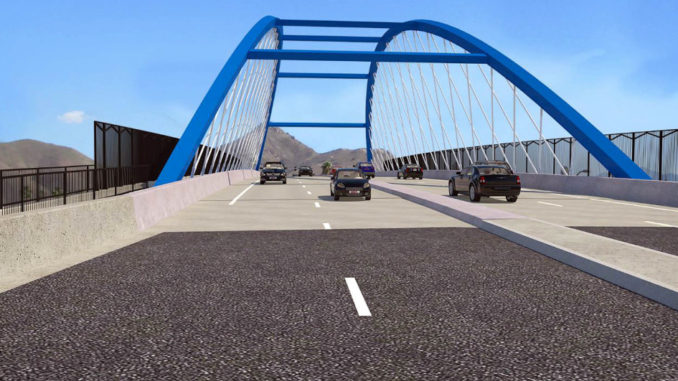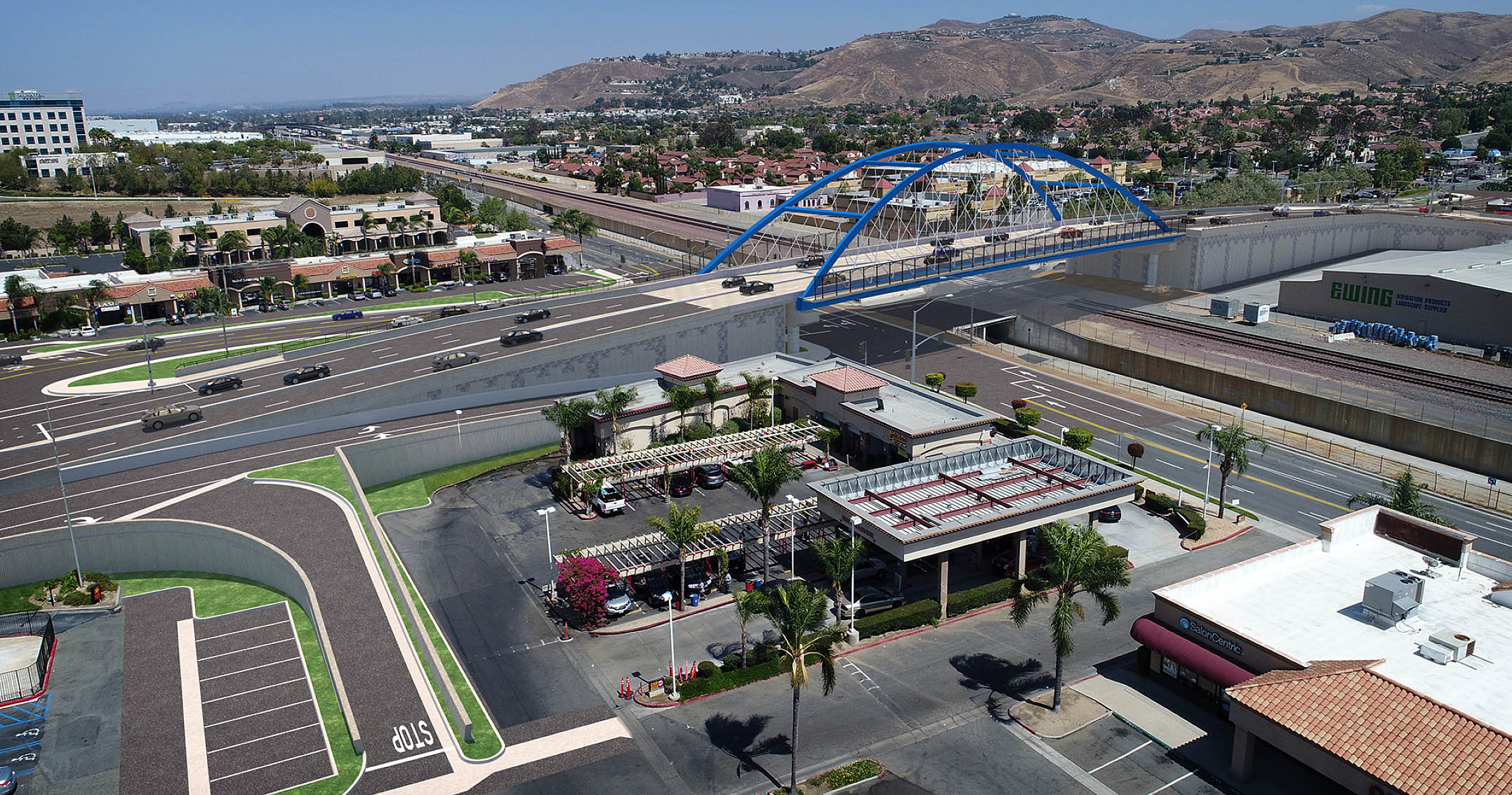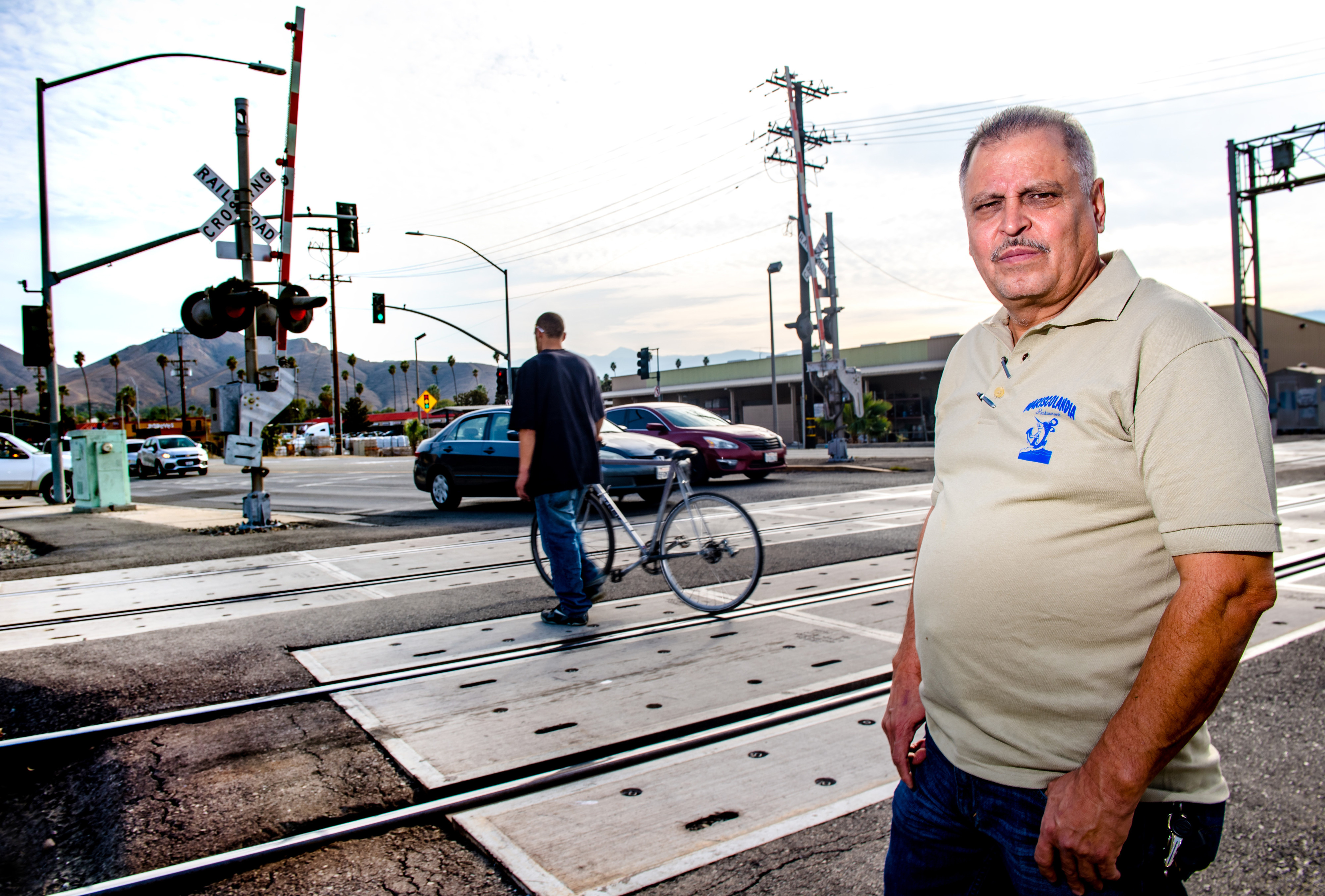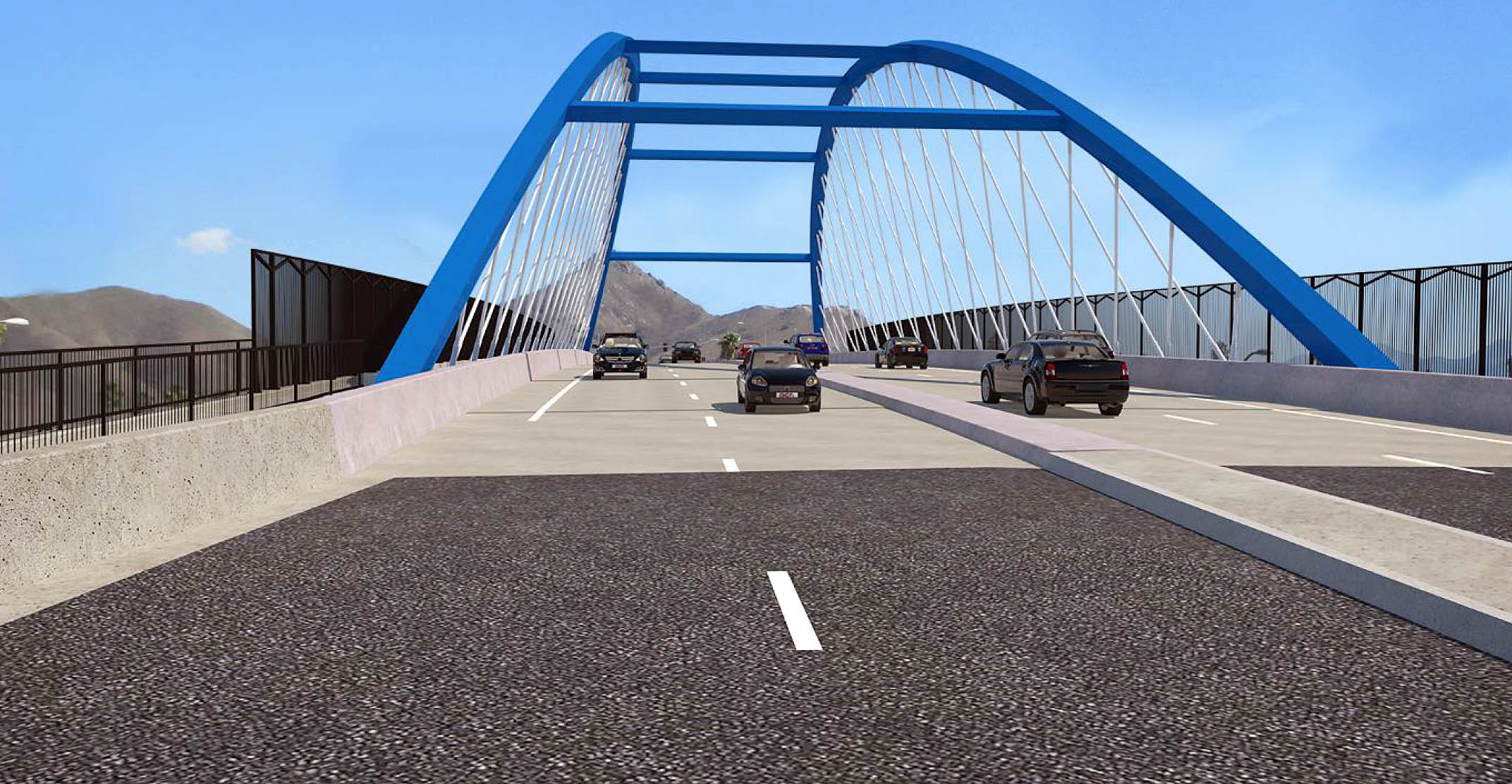
Construction on a $111 million bridge that will separate cars and trains along Corona’s busiest thoroughfare could start in June.
City officials say they have the cash they need to build a four-lane McKinley Street railroad overpass in east Corona, after snaring a $10.3 million grant from the California Transportation Commission this month.
“I can’t be more thrilled,” Mayor Jacque Casillas said.
The state panel also awarded grants of $58.1 million for rebuilding the 91-71 freeways interchange in west Corona and $9.4 million for a Limonite Avenue project in Eastvale.
Casillas said the bridge, when completed in 2023, will create a safe railroad crossing for pedestrians, shorten response times for emergency vehicles and eliminate delays drivers put up with daily waiting for trains to pass.
City officials say that, on a typical day, motorists collectively pause for two hours and 35 minutes while 88 trains rumble by. A city forecast predicted that, in 2035, the number of daily train crossings will reach 137, boosting the wait time to four hours and 20 minutes.
“This will fix that,” Casillas said.
Not everyone is looking forward to the fix
Angelique Padilla-Hartog, general counsel for C.P.I. Properties, which owns the 6.2-acre Los Arcos Plaza shopping center and McKinley Executive Plaza office complex, said the project will close anchor tenants Denny’s and Outback.
“That’s going to be a devastating blow,” Padilla-Hartog said by phone.
The project will compromise visibility, curb the number of parking spaces from 470 to 385 — by 18% — and create a confusing new route to reach the center via a loop road the city plans to construct, she said.
Rick Friess, C.P.I. Properties’ attorney, said the center will go from having prime freeway frontage “to being in a canyon.”
Center tenants include a liquor store, dentist’s office, eye lash studio, nail salon, taco shop, nutrition store, real estate office and learning center for children, Padilla-Hartog said.
C.P.I. Properties was created by three brothers — Carlos R. Padilla, Pete Padilla and Isidro Padilla — whose first names are reflected in the name, she said.
“The brothers have never opposed the project,” Padilla-Hartog wrote in an email. But she said “they feel they should have had more input” in the design.
City spokeswoman Cindy Solis said a total of 17 parcels and 13 owners will be affected, with slopes and utility easements crossing properties. She said only the restaurant property will be acquired.
According to a court document, the Los Arcos center is comprised of four parcels.
C.P.I.’s response to a city condemnation suit alleges Corona did not make a fair offer for the two parcels the restaurants sit on. The filing says the city improperly treated the condemnation like separate takings of two standalone parcels surrounded by vacant land, rather than a significant taking from a shopping center, and undervalued them.
Solis said in an email that all offers to property owners were established through independent appraisers and the city will continue to negotiate with owners to reach “a mutually acceptable resolution.”
Padilla-Hartog also said the city did a poor job planning for the bridge and how it will fit into the surrounding area.
“Basically what they did was try to fit a square peg in a round hole,” she said.
Solis said the city evaluated numerous alternatives while seeking input from Caltrans, the Riverside County Transportation Commission and property owners. She wrote that the alignment for a loop road between McKinley Street and Sampson Avenue creates “the least amount” of impact on private property.
People won’t be able to drive directly onto the loop road from the eastbound 91 Freeway, she said, but they will be able to reach it from northbound McKinley and both directions of Sampson.
Samuel Huerta, owner of the Mariscolandia restaurant that specializes in Mexican-style seafood, also has concerns.
“With everything going on right now, it will just make things that much worse,” Huerta said Friday, Dec. 18, on a day when he served a mere four takeout orders in four hours.
Business already was down after last year’s closing of a grocery store, Huerta said.
Then the coronavirus pandemic hit, with its restrictions. Now construction is coming.
“When it rains it pours, I guess,” he said.
City Councilman Wes Speake said he’s aware of the challenges businesses face.
Speake said the city will insist that construction take place at night to minimize the impact.
“We are not going to create a war zone just to get this done on time,” he said.
Then, after the bridge opens, Speake said, the city will work with business owners “to reimagine the area.”
Solis wrote that the project is expected to be completed in June 2023.
The city faces deadline pressure, because the biggest piece of the funding package — an $84.5 million state grant — came with the caveat that the city finish the bridge by June 30 of that year. The money came from a deal Sen. Richard Roth, D-Riverside; and Assemblywoman Sabrina Cervantes, D-Riverside, cut with then-Gov. Jerry Brown in April 2017 to provide $427 million for area transportation projects, in exchange for support for a gas tax increase.
Solis said grants will pay for almost $100 million of the $111 million cost, with city dollars covering the rest.








